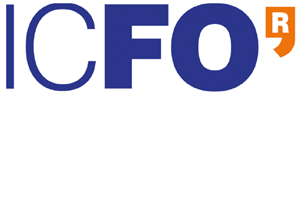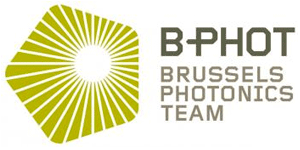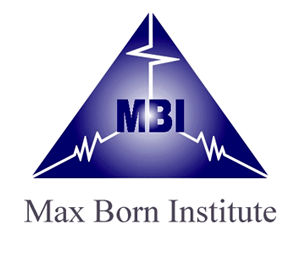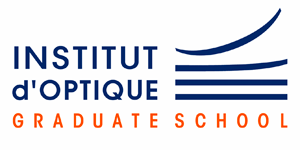
ICFO, the Institute of Photonic Sciences, was founded by the Regional Government of Catalonia, Spain, and the Technical University of Catalonia-Barcelona Tech in 2002 with the mission to conduct wide-scope frontier research in Photonics. ICFO promotes cutting-edge research, education at the Master, PhD and post-graduate levels, entrepreneurship, technology and knowledge transfer, and commercialisation of photonics. ICFO is located in a specially designed 14.000 m2 building, situated in the Mediterranean Technology Park, in greater Barcelona. The institute hosts more than 250 researchers, organized in more than 20 research groups working in 60 state-of-the-art research laboratories, equipped with the latest experimental facilities for nanofabrication, characterization, imaging and advanced engineering.ICFO’s outreach team endeavours to inspire all interested students, teachers, physicians, fellow scientists, the general public and industry at large to discover the wonders and potential of the science and technology of light. ICFOnians team-up with teachers to build effective programmes for high-schools, and provide unique opportunities for researchers, teachers and students to interact and to inspire each other. ICFO organises events, courses, visits, hands-on experiences and all sorts of activities to open young minds to the wonders of science, such as the E2C3 Summer Camp sponsored by CatalunyaCaixa (CX). Every year ICFO opens its door to the local community for the national science week. ICFO has a dedicated exhibition space ‘ICFOSEUM’, which welcomes countless visitors a year. Information, reports and experimental training courses are available for professionals, from companies and hospitals, who want to enhance their skills and learn more about photonics. Special activities aim at reaching out to scientists in other fields, especially in areas related to ICFO’s Light for Health, Light for Energy and Light for Information programmes. ICFO also collaborates with museums, media, science communicators and corporate foundations to share experience and build knowledge. The results include educational videos, documentaries for TV and exhibitions. Explore ICFO activities on the web and do get involved by contacting the ICFO’s outreach team.
Type of Institution: Non-profit organization
Website: www.icfo.eu
Contact: outreach@icfo.eu

Vrije Universiteit Brussels is a competitive, high-quality, socially committed and internationally-oriented university located in Brussels of which the core activities are education, research and social services. The Brussels Photonics Team B-PHOT of the Vrije Universiteit Brussel, under the leadership of Prof. Hugo Thienpont, has been active in the field of micro-miniaturized photonics for 25 years. Carefully planned investment and adequate management strategy allowed B-PHOT to successfully build expertise in micro-photonics and to set up unique technology platforms and infrastructure to support the micro-systems supply chain. B-PHOT is currently among the world-leaders in optical modelling, optical characterization, low-cost rapid prototyping, and proof-of-concept demonstration of micro-optical modules and micro-photonic systems. B-PHOT has collaboration agreements in fundamental, strategic, applied and industrial research with top-level research groups in Europe, in the United States, Australia, and Asia, and with companies in Flanders, Europe, Asia, Japan, and the US. B-PHOT counts 40 experts in photonics and 10 technical staff members. Cultivating the next generation of engineers is important. At B- PHOT we have created an array of activities and opportunities to fascinate young and old in the science and technology of light. B-PHOT targets, in particular, young and enthusiastic students to encourage them to pursue a fantastic and rewarding career; as a photonics researcher, an engineer or as an entrepreneur. Outreach activities include photonics science shows, attractive exhibits on light-lasers-and-photonics for the entire family and the development of professional photonics educational kits for secondary schools.
Type of Institution: University
Website: www.b-phot.org
Contact: Thienpont Hugo

Max Born Institute for Nonlinear Optics and Short Pulse Spectroscopy is a non-profit research institution in Berlin, Germany. The MBI conducts basic research in the field of nonlinear optics and ultrafast dynamics of the interaction of light with matter and pursues applications that emerge from this research. It develops and uses ultrafast and ultra-intense lasers and laser-driven short-pulse light sources in a broad spectral range in combination with methods of nonlinear spectroscopy. With its research the MBI fulfils a nationwide mission and is an integral part of the international science community. It offers its facilities and its scientific know-how also to external researchers within the framework of an active guest programme. The MBI is involved in a large number and variety of cooperative research projects with universities, other research institutions and industrial partners. Together with the partner universities in the Berlin region, MBI engages in the education of Master, PhD and post-graduate students. In the framework of European Marie-Curie Initial Training Networks and a Leibniz Graduate School, MBI provides specialized training for young researchers in an inspiring international environment. MBI offers lab tours, events and hands-on experiments for high schools students, either individually or within the framework of regional activities like the ‘Adlershof days of science’. Every year at a special open day for girls MBI provides hands-on experience for girls encouraging them to seek a career in photonics. During the annual ‘Long night of sciences’ the broad public is invited to a photonics science show and guided lab visits. Optics and Photonics are also at the core of Laserlab-Europe, the network of leading organisations in laser-based inter-disciplinary research in Europe, which is represented in ECOP through MBI. Network activities include actions to increase the general awareness of the potential of lasers and photonics, and to communicate these to a very broad audience. Together with the network partners, MBI organised the European tour of the travelling exhibition Fascination of Light.
Type of Institution: Non-profit research organisation
Website: www.mbi-berlin.de
Contact: Daniela Stozno

The National University of Ireland Galway, is a non-profit Institution for higher education and scholarship, with over 16,000 students and more than 2,200 staff. NUI Galway has a distinguished reputation for teaching and research excellence in the fields of arts, social science, and celtic studies; business, public policy and law; engineering and informatics; medicine, nursing and health sciences; and science. The Applied Optics Group was formed in October 2002 with the support of Science Foundation Ireland. We are part of the School of Physics in the Optics Cluster with the National Centre for Laser Applications, the Biophotonics Group and the Tissue Optics and Microcirculation Imaging Group. We currently number approximately 30 researchers and have over 40 past members of the group. Our research programme covers a wide variety of topics in applied optics and imaging science, including smart optics, adaptive optics, optical scattering and propagation, and engineering optics. We recognise the need for innovation in science education and are committed to working extensively with schools. The group has developed significant outreach programmes both in primary and post-primary schools. These programmes are coordinated and run by the group’s Outreach Programme co-ordinator in conjunction with members of the research team. The main aim of these programmes is to increase awareness and interest in science and enhance the communication skills of the researchers working in the group. The education outreach team works closely with the relevant teachers to design and develop learning initiatives to match the needs of the target group of students. Usually, the learning programmes are delivered in the participating schools, during normal class time, by the team of Applied Optics specialists.
Type of Institution: University
Website: www.optics.nuigalway.ie
Contact: Martin Leahy

L’Institut d’Optique Graduate School is a non-profit institution for higher education and research in Optics recognised as of public interest by French law as of August 11, 1920. The Institute is dedicated to, the training of highly skilled professionals at the levels of master of science, master of engineering and doctor of science, to research in a broad range of cutting edge topics ranging from basic physics to applications, and to the creation of economic activity for the benefit of society by the take-up of research results, in particular through the promotion of innovation and entrepreneurship.
Type of Institution: Non-profit higher education and research organisation
Website: www.institutoptique.fr
Contact: Prof. Pierre Chaval

Imperial College London embodies and delivers world class scholarship, education and research in science, engineering, medicine and business, with particular regard to their application in industry, commerce and healthcare. The College fosters multidisciplinary working internally and collaborates widely externally. Based in central London and formerly part of the University of London, Imperial College London is now an autonomous self contained unit, with over 6,000 undergraduate students, 2,000 postgraduate students and 4,000 academic, research and support staff. Its areas of expertise are centred on Science, Technology and Medicine and it is consistently rated one of the top institutions nationally and internationally, in terms of both teaching and research. Interdisciplinary collaboration is strongly encouraged and supported at the College, with several real and virtual centres set up specifically at the interface between physical and engineering sciences and the life sciences. The Photonics Group at Imperial is based in the Physics Department and is part of the Optics Section, which dates back to 1917 and currently includes more than 200 research staff and students. Today it comprises the Photonics Group, the Quantum Optics and Laser Science Group and the Experimental Solid-State Physics Group. The broad research themes of the Photonics Group at Imperial are imaging and sensor technology, fibre and laser optics, electromagnetic theory and Biophotonics. Current projects include adaptive optics applied to astronomy and medical (ophthalmic) imaging; fluorescence-based molecular imaging, including optical tomography, fluorescence lifetime imaging and multidimensional fluorescence imaging applied to tissue diagnosis and molecular biology; rigorous electromagnetic theory (FE, FDTD, volume integral methods), applied to focusing, imaging and polarisation, chiral media and Bragg structures; high power fibre laser technology, including sources, amplifiers, nonlinear fibre optics and compact high power visible/UV sources; optical fibre sensors, high power solid-state laser technology and nonlinear optics; ultrafast diode-pumped solid-state and fibre laser technology and optical storage, including DVD, multiplexed high density storage.
Type of Institution: University
Website: www.imperial.ac.uk/photonics
Contact: Prof. Paul French

Politecnico di Milano technical university consists of Faculties of Engineering, Architecture and Design, with mission to conduct education at Bachelor, Master, PhD and post-graduate levels, basic and applied research, entrepreneurship, technology and knowledge transfer in all topics related to its faculties, including Photonics. Research activities in Laser Science, Photonics and Applications cross 3 different departments. The Department of Physics focuses on Ultrashort light pulse generation and applications to the study of ultrafast phenomena in the matter; Solid state lasers and photonic devices for integrated systems; as well as Photonics for health, food and cultural heritage. The Department of Electronics and Information Technology undertakes research in: Single-photon detectors with picosecond resolution for quantum information science and fast phenomena studies; Solid state imaging detectors for ultra-sensitive laser ranging and profiling and new principles for colour recognition; and Detectors and electronics for biomedical and genetic applications. The Department of Mechanics (SITEC, Laboratory for Laser Applications) investigates: study and optimisation of manufacturing processes performed by high brightness laser sources; Micromachining of biomedical devices and smart materials with high productive PW fiber lasers; New solutions and architectures in controlling and monitoring laser processes, to be integrated in adaptive laser systems; and Analytical and numerical modelling of laser processes. Outreach @ Politecnico di Milano The dept. of Physics organises conferences and lab tours for high school teachers and students and as well as the HI-TECH programme, an innovative teaching experience for top grade students of high schools (4th year) interested on scientific-technical topics, among which photonics. The dept. of mechanics, hosts “AltaBrillanza”, the Italian Workshop on the Industrial Applications of High Brightness Lasers. The dept. INDACO (light and colour) run several Life-long learning/professional training courses on Lighting Design and LED technology.
Type of Institution: University
Website: www.fisi.polimi.it
Contact: Roberta Ramponi

International Laser Centre is an independent non-profit research and educational institution in Bratislava, Slovakia. Established as a key national platform for education, research and development in the field of lasers and photonics, it was founded by the Ministry of Education of the Slovak Republic in January 1997 in close cooperation with the Slovak University of Technology in Bratislava, Comenius University in Bratislava and Moscow State University, Moscow, Russia. It provides an inter-disciplinary research infrastructure for collaborative research in many fields of science, spanning from applied photonics, material science, information and communication technologies, ultrafast spectroscopy to biomedical imaging and visualization. In 2009 ILC was awarded by a support from EC structural funds and became the Centre of excellence for design, preparation and diagnostic of nanostructures for electronics and photonics. The mission of ILC is implemented by fostering young scientific, engineering and biomedical talents in cooperation with Slovak educational and academic institutions as well as industrial partners. Together with partner universities ILC actively promotes the education of Master and PhD students. Since 2009 ILC is a member of Laserlab Europe, in which - in addition to collaborative research - it co-ordinates the user training activities and plays a role of a National contact point. ILC has representatives in European Technological Platform Photonics 21 and hosts the SPIE Student chapter. Based on its long-term close collaboration with major Slovak Universities, ILC play an active role in outreach activities aiming to inspire, gather and distribute knowledge and awareness of the potential of lasers and photonics among students, scientists, as well as general public. On annual basis ILC provides thematic excursions or experiential science shows describing the principles and practical applications of lasers and photonics technologies. It accepts selected students from secondary schools to realize their practical education, and organizes stands on Photonics during Nights of Researchers and Weeks of science and technology.
Type of Institution: Non-profit research organisation
Website: www.ilc.sk/en
Contact: Dusan Chorvat

